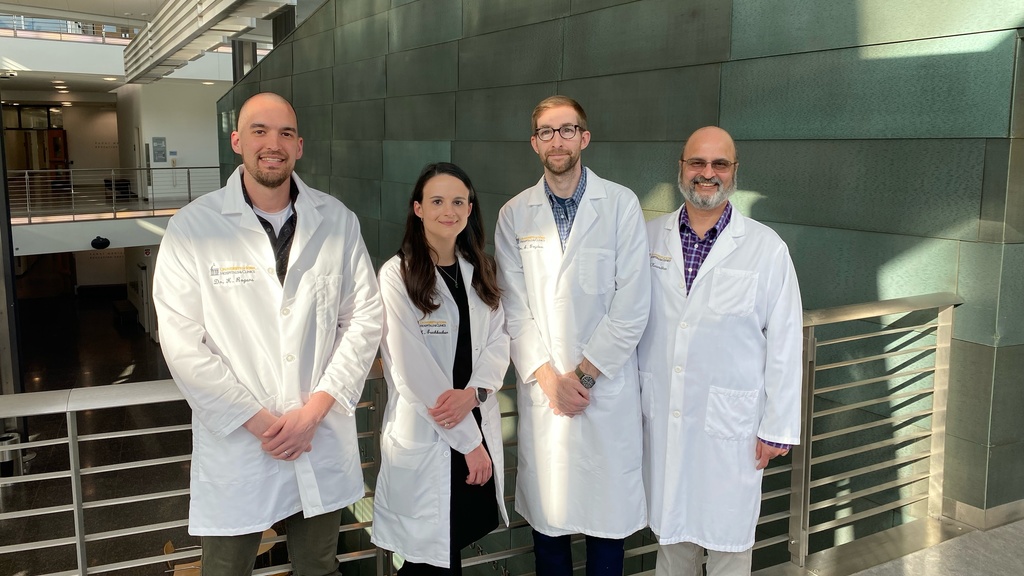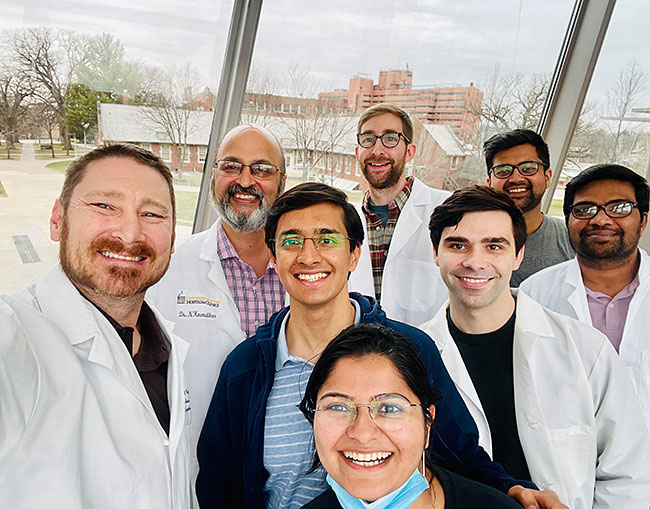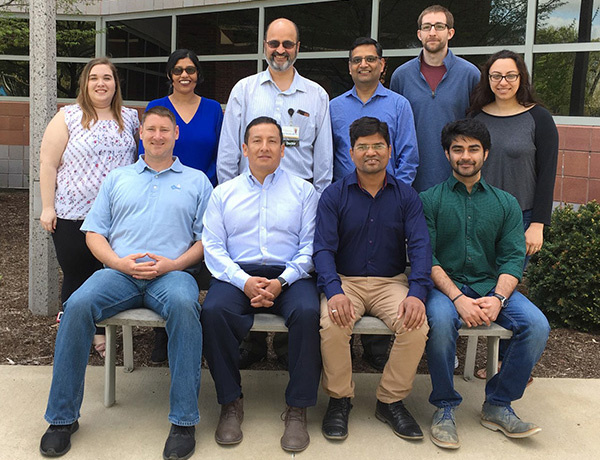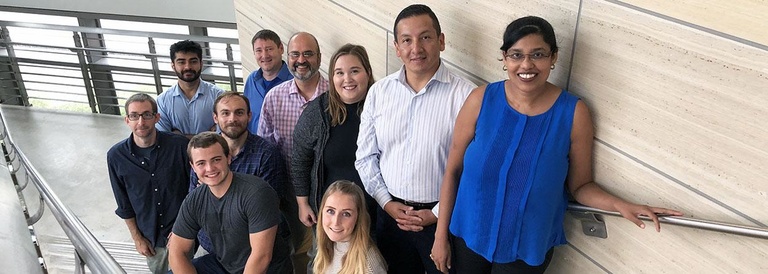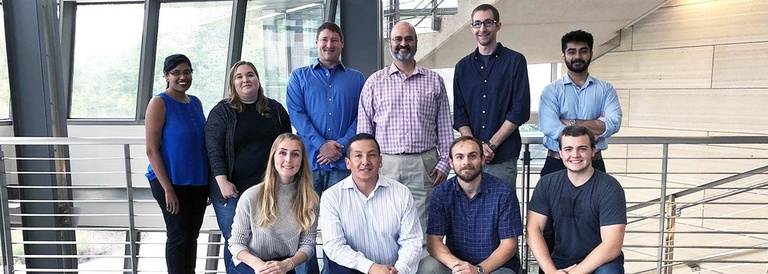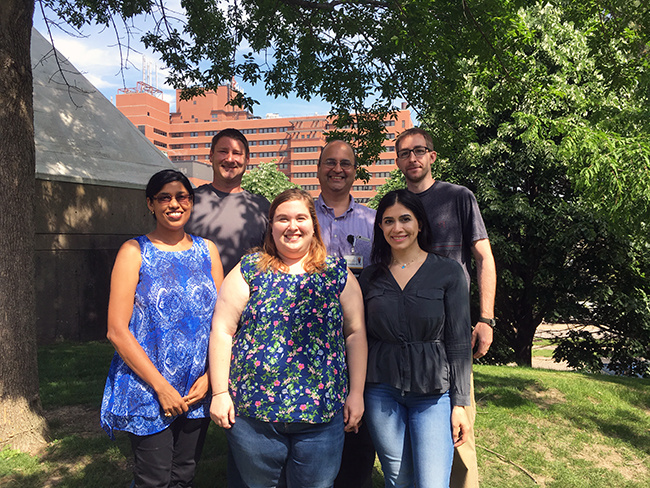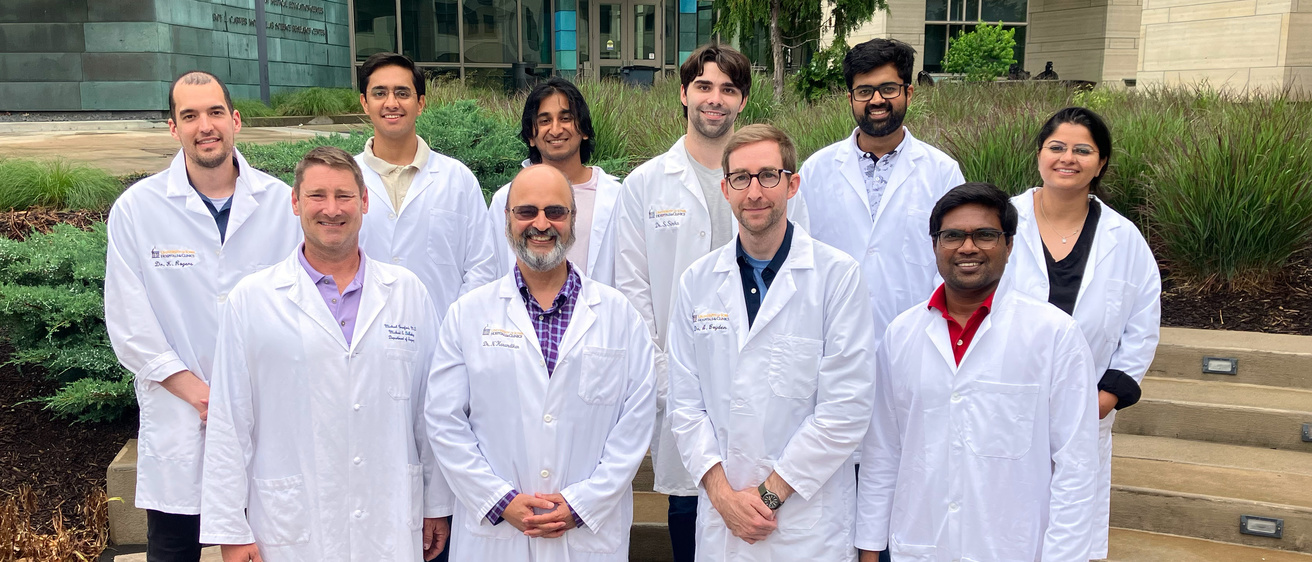
2023 Lab Group Photo
About The Lab
A major focus of the laboratory is the immune-mediated, demyelinating disease, multiple sclerosis (MS). Through studies in human MS and its animal model, experimental autoimmune encephalomyelitis (EAE), we are dissecting the role of autoreactive and regulatory CD8+ and CD4+ T-cells in the intrinsic as well as therapeutic modulation of disease, including their interactions with dendritic cells and B cells. We are dissecting the role of effect or T-cell resistance to immune suppression. An additional intent of these studies is also to unveil the regulatory components of the healthy immune system. We are also closely involved in several collaborative projects, including clinical projects involving immunophenotypic characterization and multi-modality diagnostics of hematolymphoid disorders and the development and evaluation of newer diagnostic test technologies in cellular immunology and clinical flow cytometry.
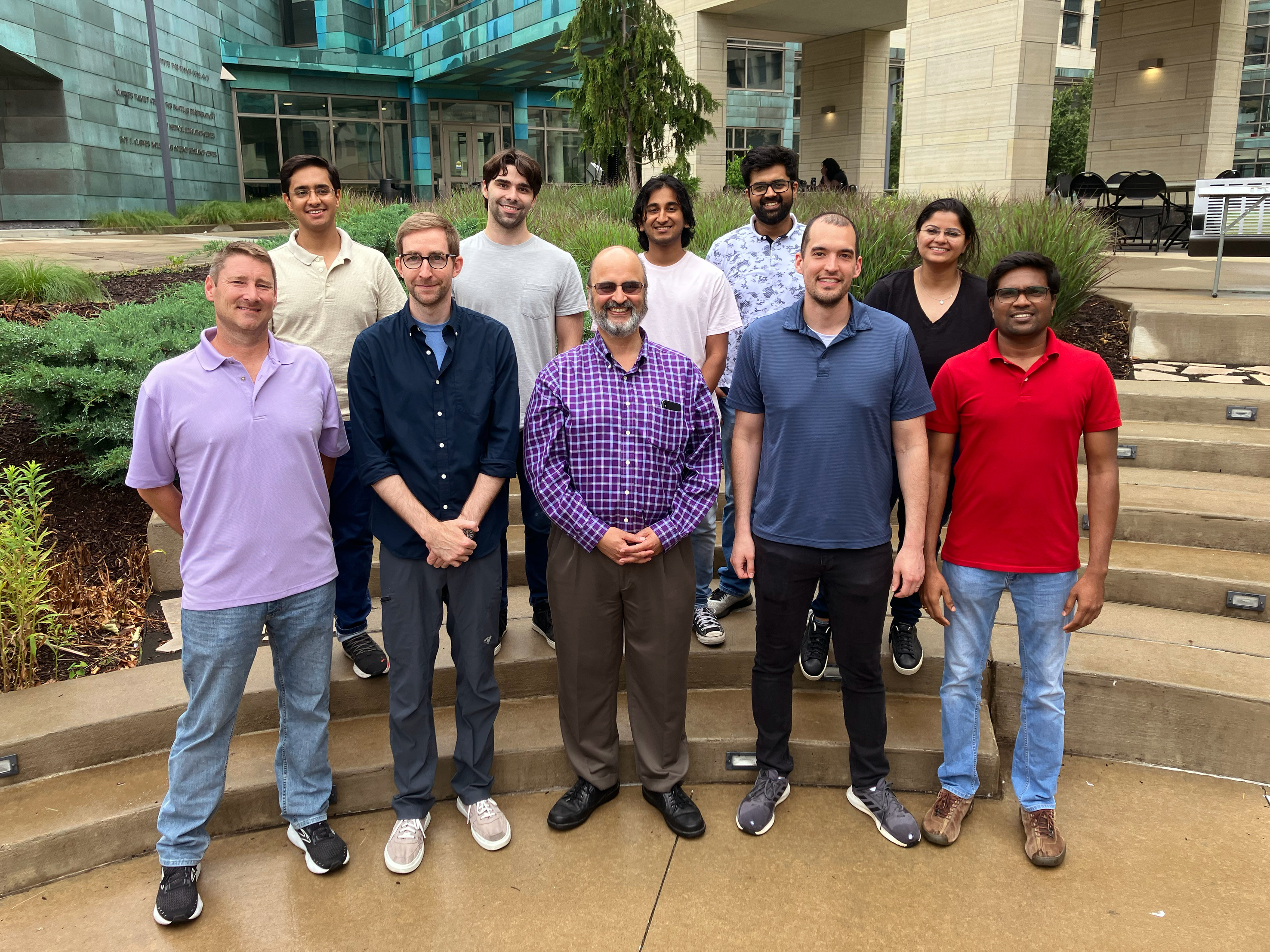
Front: Michael Crawford, Alexander Boyden, Nitin Karandikar, Kai Rogers, Chakrapani Vemulawada
Back: Mohit Upadhye, Connor Wilhelm, Mohan Kumar, Aditya Kulkarni, Kshitija Kale
Recent News

Karandikar Lab finds that disease-suppressive CD8+ T cells influence dendritic cells in experimental autoimmune encephalomyelitis

Nitin Karandikar to Serve as Enterprise Chief Strategy Officer While Continuing as Pathology Chair and DEO
